The voice of faith: Nusrat continues to stoke fire in mystic souls
French author launches book celebrating legendary musician’s life
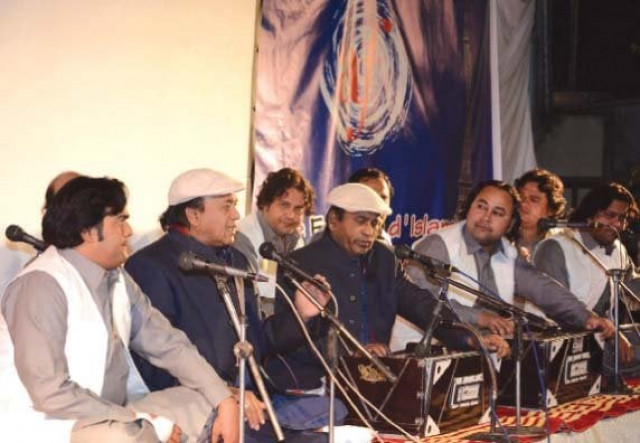
Mehr and Sher Ali Qawwal ensemble perform at the event. PHOTO: EXPRESS
Nusrat was performing at the Théâtre de la Ville in Paris, a concert that launched his international career.
“I was overwhelmed to meet him for the first time in 1985, and I knew it was a fundamental turn in my life,” said Baud, author of the biography, “Nusrat: the voice of faith”, which was launched at Alliance Française, here on Sunday evening.
For Baud, interacting with Nusrat was a union of the souls.
“He was inhabited by the divine, an eminent figure embodying the concept of faith,” he said.
The same feeling inspired the title of his book and as he put it, “Khan’s fame keeps on widening, like a fire that is still stoking mystic souls as well as ardent listeners.”
So began Baud’s journey of a life-long quest to discover the multiple facets of the personality and Nusrat’s music, who is also touted as the “Singing Buddha” or “Shahenshah-e-Qawwali”, whose life was cut short at the age of 48 in 1997.
Baud said that scholars, who had done their research on the singer, had drawn parallels with Bob Marley, the Jamaican music legend.
“Both (Nusrat) and Marley were rooted in their own faith – (Nusrat) in sufism and Marley in Rastafarianism. Both of them were seen as carriers or messengers and both of them accepted to be used by the global age.”
Baud’s book was originally published in French in 2008.
The English version was translated by Renuka George, a filmmaker from New Delhi.
Published in paperback in 2015 by Harper Collins, India, the book was described by Newsline magazine as “…an important text and an engaging read, not only for Nusrat Fateh Ali fans, but for future generations.”
George read an excerpt from the book, which chronicled Nusrat’s global rise to fame and its impact on audiences across the world – bridging cultures, continents and generations.
The launching ceremony was followed by a video footage from Nusrat’s life.
To rekindle the aura of Nusrat, the Mehr and Sher Ali Qawwal ensemble – presented some of the late legendary musician’s popular compositions such as “Mun kunto maula” and “Chaap tillak” by sufi poet Amir Khusro; and “Mera piya ghar aya” by Baba Bulleh Shah.
Nayyar, a teacher from Islamabad, said of the evening, “The poetry is just beautiful and the musicians have really put their heart and soul into the performances tonight.”
Published in The Express Tribune, February 23rd, 2016.


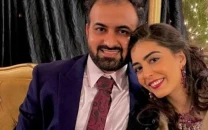
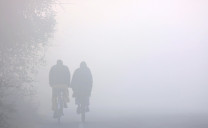

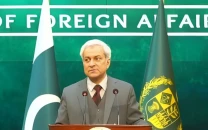










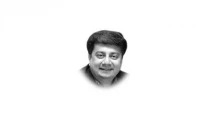


COMMENTS
Comments are moderated and generally will be posted if they are on-topic and not abusive.
For more information, please see our Comments FAQ